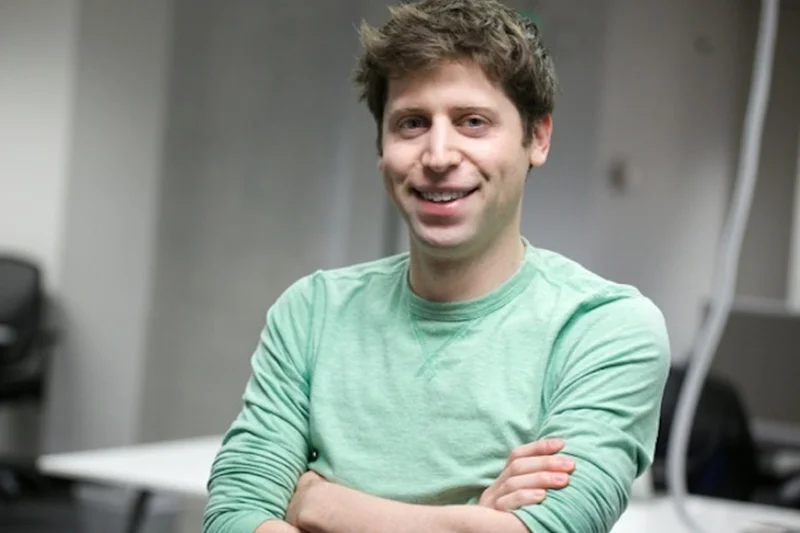Article Directory
Let’s get one thing straight. When a man whose net worth is tickling a billion dollars tells you he’s “envious” of 20-year-old dropouts, he’s not paying you a compliment. He’s selling you something. And if you’re smart, you won’t buy it.
I can almost picture him on that sterile DevDay conference stage, bathed in the soft glow of a thousand iPhones. Sam Altman, the architect of our impending AI future, lamenting that his own creation is "taking over all of my mental space." He hasn't had a "real chunk of free mental space" to dream up a new startup.
Oh, the humanity.
Give me a break. This isn't a confession; it's a humblebrag wrapped in a recruitment poster. It’s the kind of faux-vulnerability that only the ultra-powerful can afford. He’s not envious of the crippling student debt, the ramen noodle dinners, or the sheer terror of having no safety net. He’s envious of the idea of it—a romanticized, sanitized version of the struggle he left behind nearly two decades ago.
The Billionaire's Lament
Altman’s "envy" is like a king looking down from his castle walls, seeing a group of peasants building a hut, and sighing, "Ah, the simple joy of building something with your own two hands." He’s conveniently forgetting the mud, the splinters, and the very real possibility that the whole thing could collapse on their heads. He’s not admiring their reality; he’s projecting his own boredom onto it.
He talks about the "incredibly wide" opportunity space. For who, exactly? For a kid with a Stanford pedigree and a golden ticket to Y Combinator, like he was? Or for some kid in Ohio with a brilliant idea and zero connections? Let's be real, the "opportunity space" looks a lot wider when you're already standing on the launchpad.
This whole performance is a subtle act of psychological manipulation. He’s not saying “I wish I were you.” He’s saying, “Your unformed, unburdened mind is a resource I can no longer access for myself, so I'll admire it from a distance... and maybe hire it.” What do you think happens when you have no mental space left for new ideas? You find other people's minds to use.

Silicon Valley's Favorite Bedtime Story
This isn’t just an Altman thing, offcourse. It’s the official religion of Silicon Valley. The Dropout Myth. We’ve been fed this story for decades, propping up the icons: Gates, Jobs, Zuckerberg, Dorsey. They’re presented as proof that formal education is an unnecessary shackle on true genius.
Now, we have a new generation of high priests spreading the gospel. Meta's own Mark Zuckerberg muses that "Maybe not everyone needs to go to college." GV CEO David Krane tells a cute story about his son questioning if higher ed is a "scam" after a summer internship in AI. It’s all so neat and tidy.
This is a bad idea. No, 'bad' doesn't cover it—this is a five-alarm dumpster fire of a narrative. They're not trying to liberate you from the ivory tower. They're trying to convince a generation of brilliant minds to skip the part where they learn their own value and develop critical thinking outside of a corporate mission statement. They want raw, brilliant, and—most importantly—cheap and malleable talent. A college degree, for all its flaws, tends to give people inconvenient ideas about things like "market-rate salaries" and "not working 80 hours a week for equity that might be worthless."
Why would the guys at the top want to encourage a system that creates more well-rounded, demanding employees? They don't. They want fanatics. They want kids who will code until their fingers bleed for a shot at becoming the next Sam Altman, a dream he’s selling that he never actually had to live, and the worst part is...
Let's Not Forget Who We're Talking About
Let’s rewind the tape on Sam Altman. He dropped out of Stanford in 2005. That’s Stanford. Not a state school, not a community college. A place where the name alone opens doors for life. He left to co-found Loopt, which went straight into the Y Combinator accelerator—the very institution he would later run—and raised over $30 million.
His story ain't the story of some random kid in a garage with a dream. He was plugged into the network from day one. His version of "dropping out" is a calculated risk taken from a position of immense privilege. He had a safety net woven from elite connections and institutional backing.
For him to now look at the current generation and wax poetic about their "freedom" is the height of hypocrisy. It’s like a lottery winner telling people to quit their jobs and buy lottery tickets because it worked out for him. It’s a dangerous fantasy, and he knows it. He’s not envious of them; he’s curating his own legend.
A Convenient Little Myth
So, what's the real story here? It's simple. The masters of the universe are bored. They've built their empires, and now they're mythologizing the struggle they've long since escaped. Altman's "envy" isn't a bridge to the common person; it's a gilded cage rattling. He's not telling you to follow your dreams. He's telling you to build his next one, and to be grateful for the opportunity. Don't fall for it.
